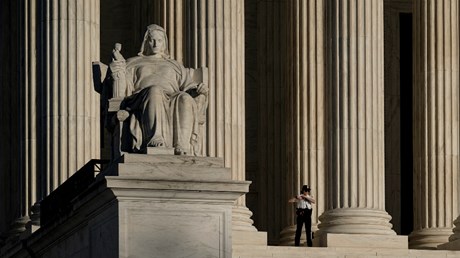Catholics ask for the exemption that a Native American Church didn’t get for drug law.

While the nation focused on counting votes on Wednesday, the United States Supreme Court heard arguments in a case that could dramatically expand protections for religious liberty.
Lawyers for Philadelphia argued that the city should be allowed to discriminate against religious social service providers as long as the rules it uses are “neutral laws of general applicability,” citing a 1990 decision penned by conservative legal giant Antonin Scalia. Lawyers for Catholic Social Services, on the other side, argued the court should reconsider Scalia’s previous ruling in Employment Div. v. Smith, because it established a standard that allows governments to target religious minorities and place significant burdens on what the First Amendment calls their “free exercise.”
“The Free Exercise clause is at the heart of our pluralistic society, and it protects petitioners’ vital work for the Philadelphia community,” attorney Lori Windham argued in Fulton v. City of Philadelphia.
“The city is reaching out and telling a private religious ministry—which has been doing this work for two centuries—how to run its internal affairs. And trying to coerce it to make statements that are contrary to its religious beliefs as a condition of continuing to participate in the religious exercise that they have carried out in Philadelphia for two centuries.”
In 2018, a city official read a newspaper story about conservative Christian opposition to same-sex foster parents. Philadelphia had long contracted foster care services to Catholic Social Services. There weren’t any complaints about the church-run organization discriminating against LGBT people, but the official was nonetheless ...
from Christianity Today Magazine
via

.gif)

.gif)

.gif)
.gif)
